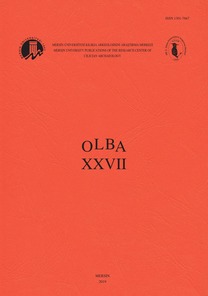Göç Olgusunun Arkeolojik Materyal ile Tanımlanması: İon Göçleri Örneği
Even though migration has been a very popular explanation for the mechanisms of cultural changes in archaeology, paradoxically identifying it based on the archaeological evidence is very difficult. Traditional perspectives of archaeology prior to “New Archaeology” have not attempted to explain the complicated nature of migration while proposing it as the only explanation of social and cultural changes. The debate on distinguishing migration from other similar processes such as invasion, colonization or commercial contact is a popular subject but remains to be inexplicable. The aim of this study is rather emphasizing the need for a methodology specifically for testing our knowledge about the trigger effects of the Ionian migration that established the beginnings of the Ionian civilization. Migration as the most important implement for the diffusion of political and cultural dynamics is also relevant to the appearance of elements that established Ionian civilization so for the “polis-state”. The development, interaction and the power of the Greek city-states as well as the formation of their poli-ethnic society are very much owed to migrations. Defining the nature of Mycenean presence at Western Anatolia prior to the Ionian migrations serves as a source of evidence for understanding the process of adaptation and in relation with that the formation of settlement pattern in the so-called Ionian region. The literary evidence that provides us an epic story about the period that represents the transition from Late Bronze Age to Early Iron Age –a new era- is perhaps deceiving when we are processing and evaluating the material evidence for verifying the presence of Myceneans on the Western coast of Asia Minor and the migration of Ionian tribes.
